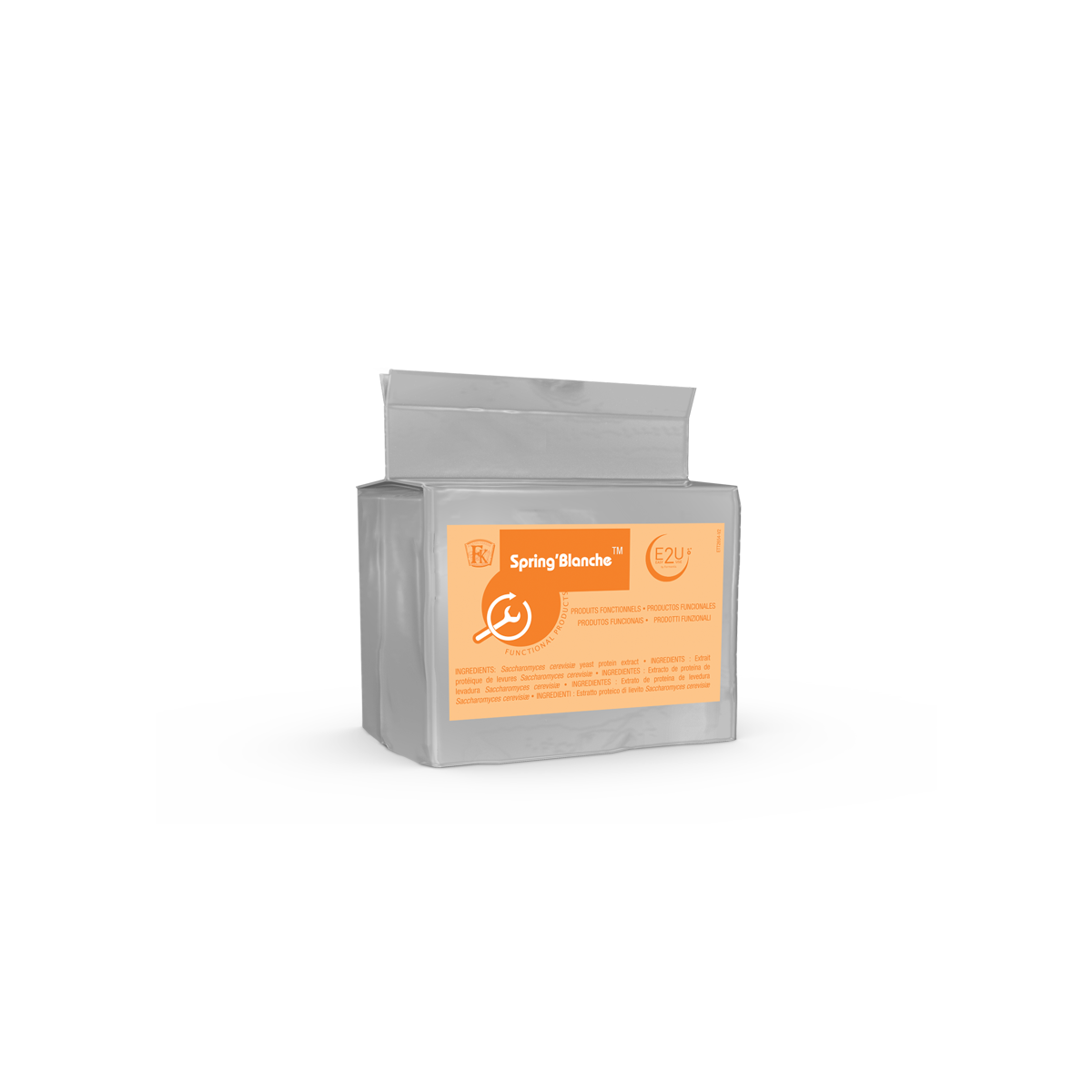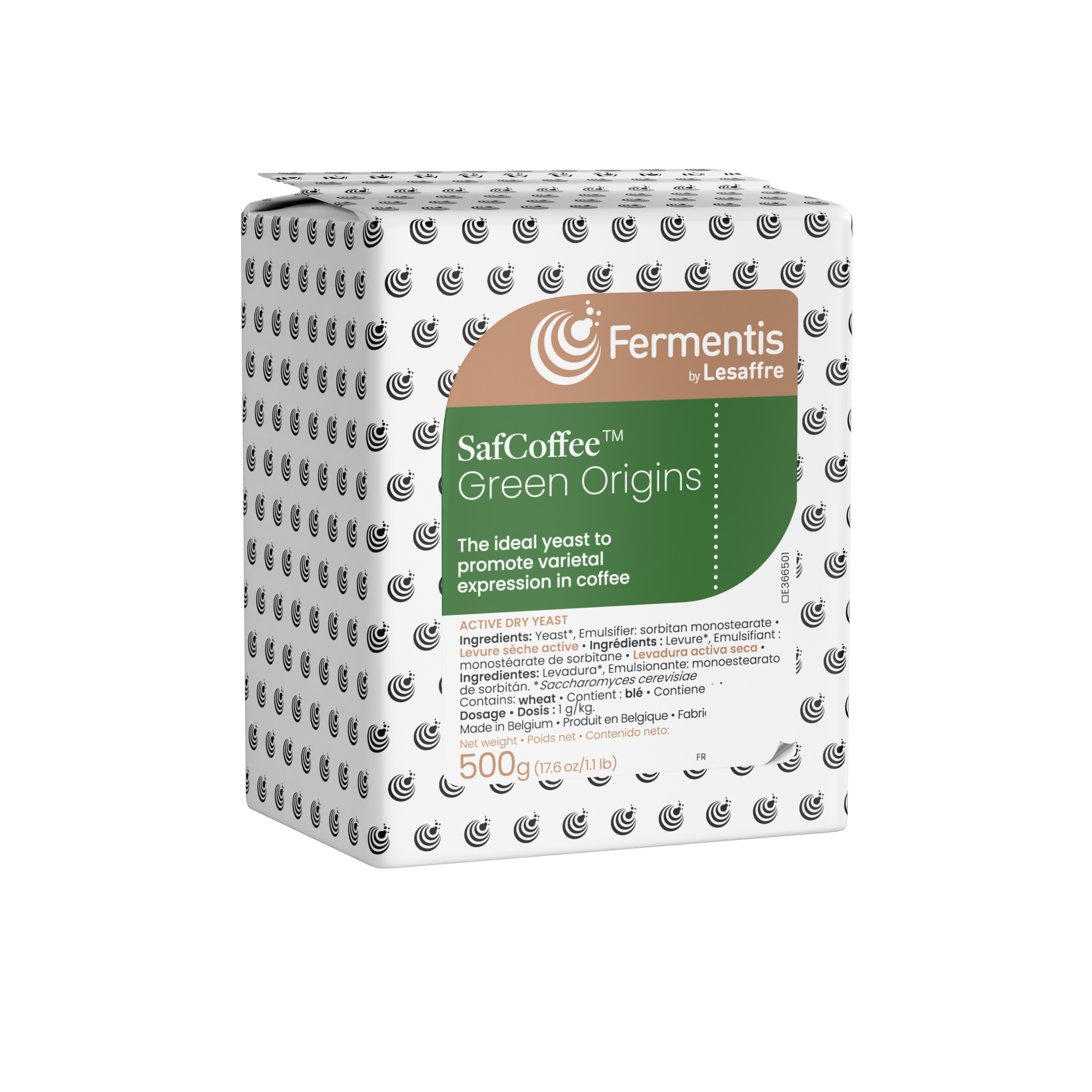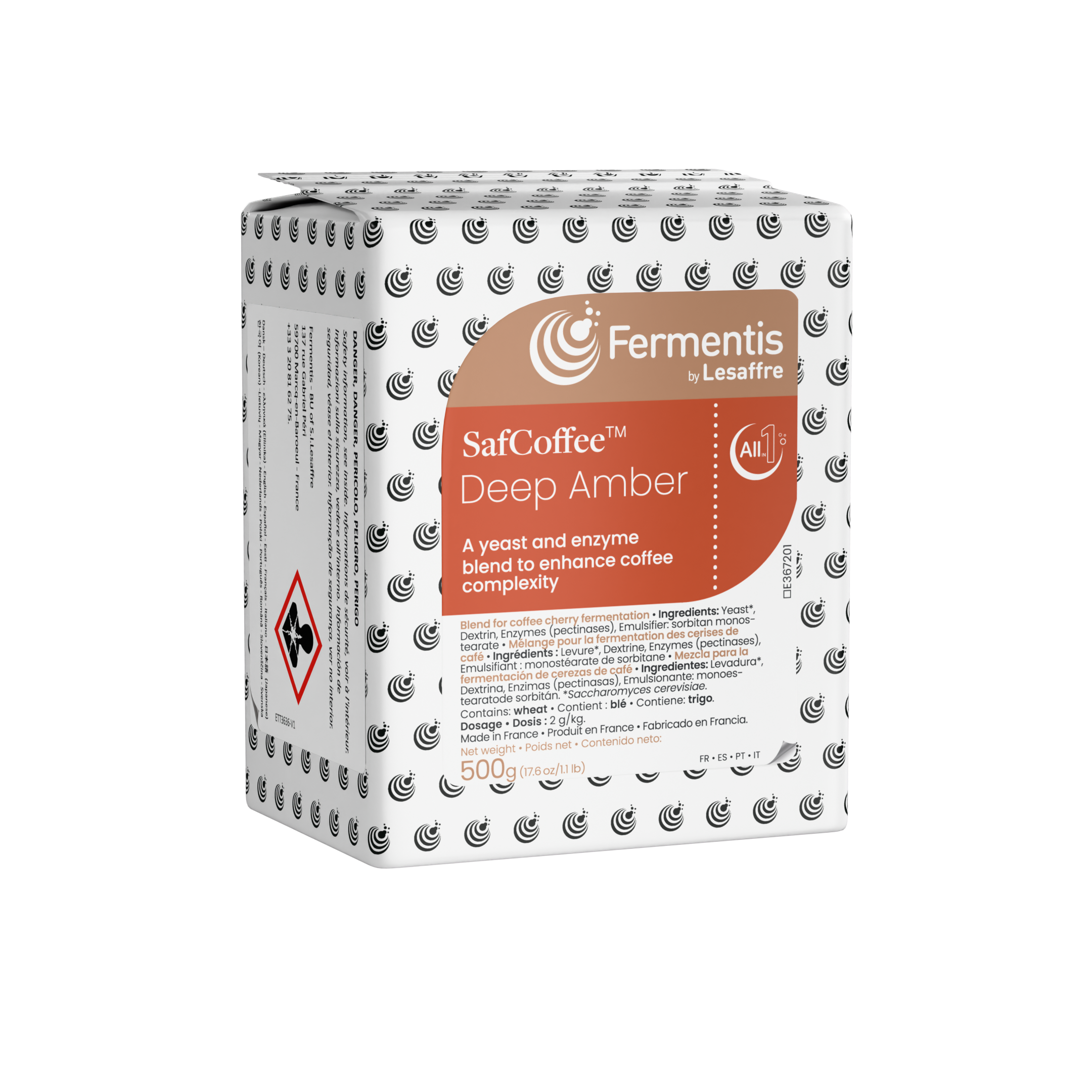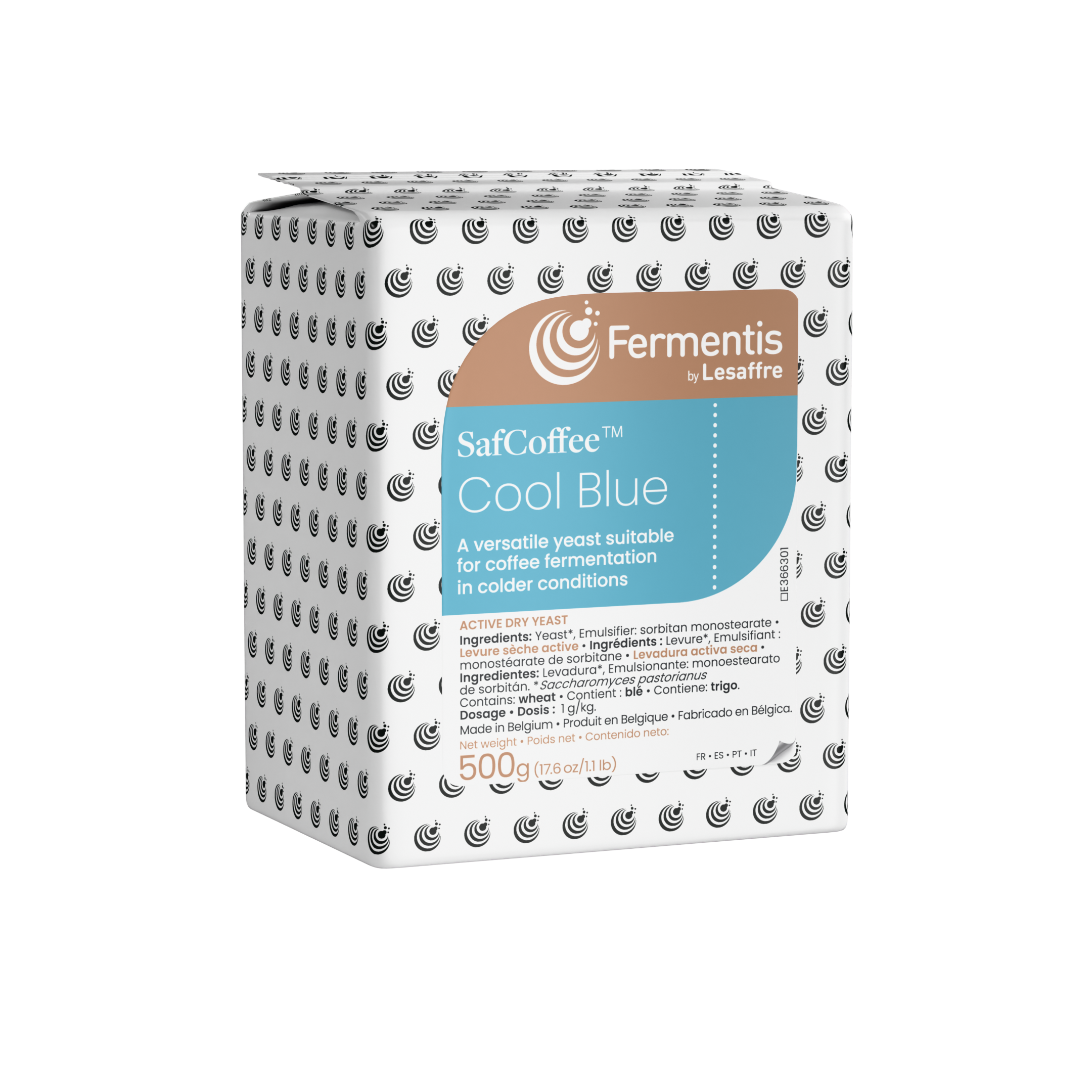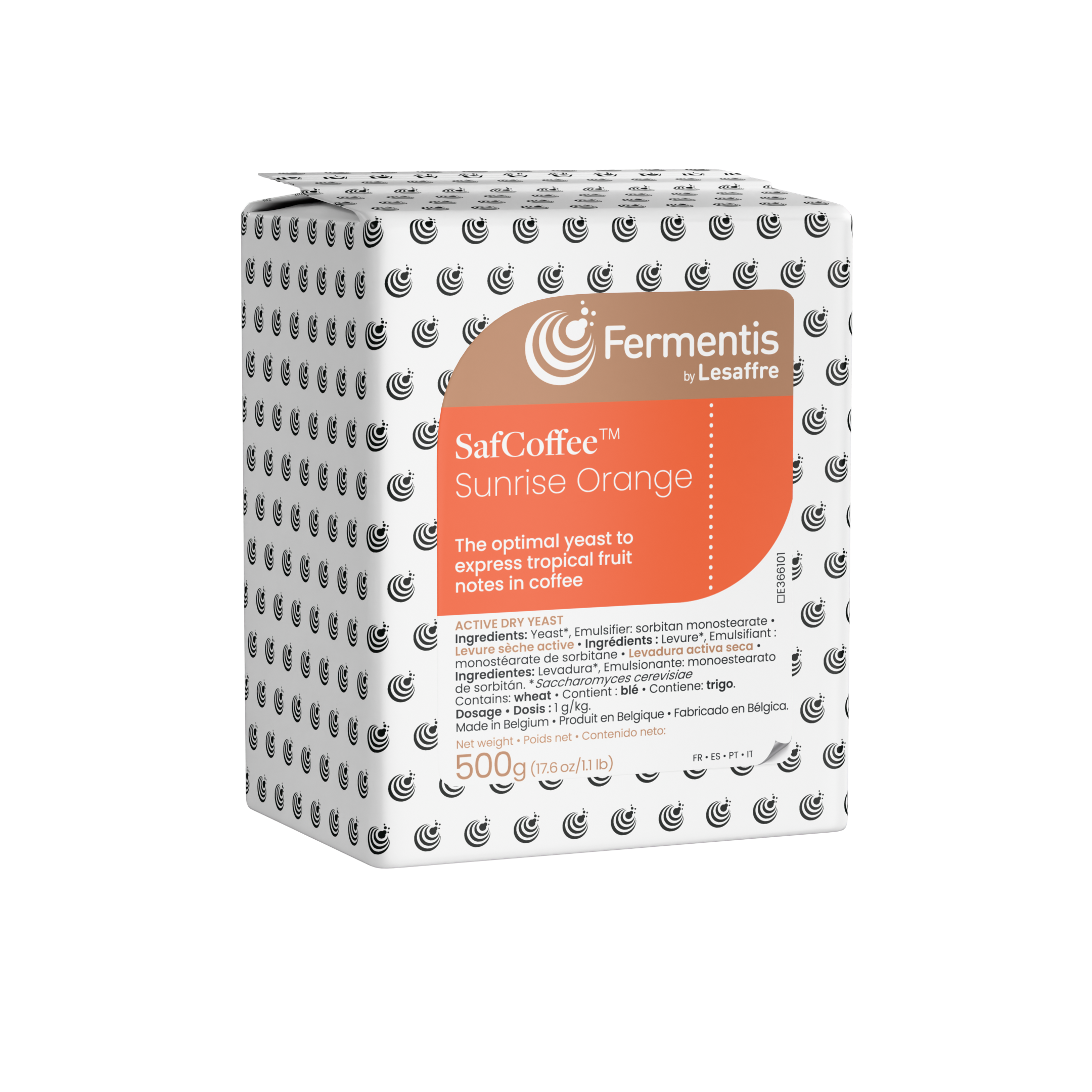Naturally secure a stable haze over time
Beer contains polyphenols which may form complexes by interacting with some specific proteins. These complexes create a haze when they remain in suspension. The haze level will depend on the polyphenol content in the beer and the particles density (W/V) will impact the stability of the haze.
Spring’Blanche™ is a yeast extract rich in native proteins of various molecular weights which will specifically interact to produce a permanent stable haze. It is ideal to produce hazy beers (wheat beers, Belgian Style Wit / Blanches or hazy IPAs).
Ingredients: Yeast Protein Extract
Spring'Blanche™ technical features
Dosage/Temperature
Between 5 g/hl and 20 g/hl. An optimum dosing rate of 10 g/hL will provide a stable haze of approximately 20°EBC.
Usage
Haze produced by Spring’Blanche™ is highly dependent on the beer composition and brewing process. It is recommended to perform some preliminary dosage trials before the first use in commercial beers. It is to be pointed out that beer pasteurization may slightly increase the final haze in beer.
It is recommended to dose Spring’Blanche™ at the beginning of the maturation step to get an optimum result. Spring’BlancheTM addition during fermentation is not recommended
Hydration
- Mix with beer (or process water) before usage. Dispersion should take less than 3 minutes.
- Disperse Spring’Blanche™ on the surface of beer or water between 20°C to 30°C under medium agitation (may be difficult to disperse at concentrations in the hydration medium higher than 150 g/L).
- If Spring’Blanche™ is hydrated in water, it should be either containing a minimum of 3ppm iso-alpha acids or it should definitely be used within 4 hours after hydration.
Points of attention
- Concentrations above 20 g/hl may impact the beer flavor profile.
- Some enzymes such as proteases may significantly decrease the efficiency of Spring’Blanche™.
- Total bacteria: < 10000 CFU / g
- Lactic bacteria: < 1000 CFU / g
- Acetic bacteria: < 1000 CFU / g
- Wild Yeast Non-Saccharomyces: < 100 CFU / g
Storage
For less than 6 months: the product must be stored below 24°C. For more than 6 months: the product must be stored below 15°C. For short periods not exceeding 7 days there is an exception to these rules.
Shelf life
Refer to best before end date printed on the sachet. Opened sachets must be sealed and stored at 4°C (39°F) and used within 7 days of opening.
Do not use soft or damaged sachets.
Each Fermentis yeast is developed under a specific production scheme and benefits from the know-how of the Lesaffre group, world leader in yeast manufacturing. This guarantees the highest microbiological purity and maximum fermentation activity.
Fermentis dry brewing yeasts are well known for their ability to produce a large variety of beer styles. In order to compare our strains, we ran fermentation trials in laboratory conditions with a standard wort for all the strains and standard temperature conditions (SafLager: 12°C for 48h then 14°C / SafAle: 20°C). We focused on the following parameters: Alcohol production, residual sugars, flocculation and fermentation kinetic. Given the impact of yeast of the quality of the final beer it is recommended to respect the recommended fermentation instructions. We strongly advise users to make fermentation trials before any commercial usage of our products.


